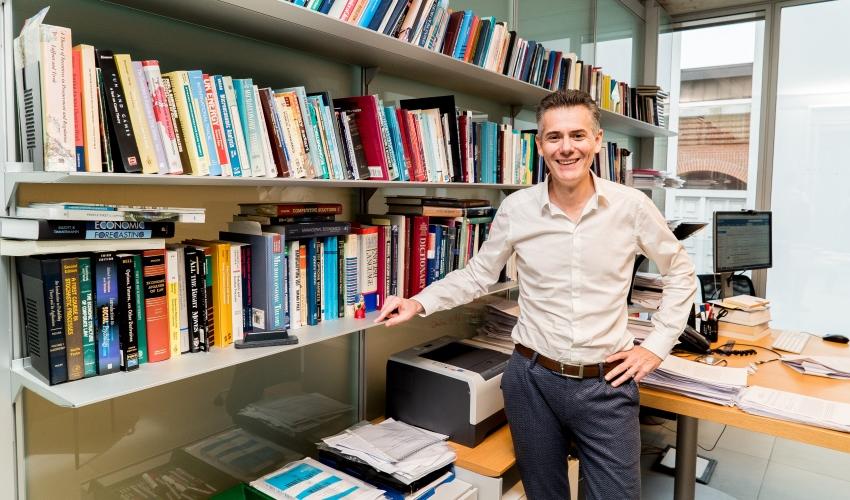
Marco Ottaviani, the Economist Chosen by Two Nobel Prize Winners
HIS ADMISSION TO THE DOCTORATE AT MIT WAS ANNOUNCED TO HIM BY OLIVER HART, THIS YEAR'S NOBEL FOR ECONOMICS ALONG WITH HOLMSTROM, WHO WAS HIS ADVISOR. FROM NOVEMBER 1 OTTAVIANI WILL BE DEAN OF RESEARCHThe phone call that Marco Ottaviani will never forget came in 1992. He was newly graduate in Political Economy at Bocconi and had applied for a PhD at the Massachusetts Institute of Technology. He was admitted and the news reached him on the phone from the voice of the distinguished economist Oliver Hart. “He was a legend for me. I was sure the phone call was a prank. Later on, my advisor was Bengt Holmström, who has recently won the Nobel Prize in Economic Sciences 2016 along with Hart”.
Son of a mathematics teacher and a doctor, Ottaviani - who from November 1 will take on the role of Dean of Research in the team of new Rector Gianmario Verona - has never had any doubts about his future: “As a boy I was attracted by the economy, business, stock markets. I wanted to understand how they work”. Reading ‘A Course in Microeconomic Theory’ by David Kreps made him interested in topics such as incentives and information economics. “I revered his ability to explain complex ideas in a simple and pleasant way. Ever since I read that book a year before graduating I knew what I wanted to do”.
Ottaviani worked in England (University College London, London Business School) and in the U.S. (Kellogg School of Management). He then returned to Bocconi where he currently shares his time between teaching and researching. “The quest to find the key to solve a problem is engaging and intense. It’s consuming: as long as you have not found the solution you can hardly sleep”.
Ottaviani urges students to discuss their researches with non-academic people. He quotes Kreps when he says that it takes ten years of brainwashing to shape a researcher and another ten years of reverse brainwashing to allow him to communicate with common people: “Confronting yourself with some common sense is healthy. There should not be barriers in communication”. He says that economics is the modern age philosophy and confesses to having an almost obsessive passion for bibliography. That’s how he discovered an article published by Émile Borel in 1938, a pioneering game-theoretic analysis. “For a researcher,” he says, “writing is like putting a message in a bottle, hoping that someone will receive it”.
by Claudio Todesco
